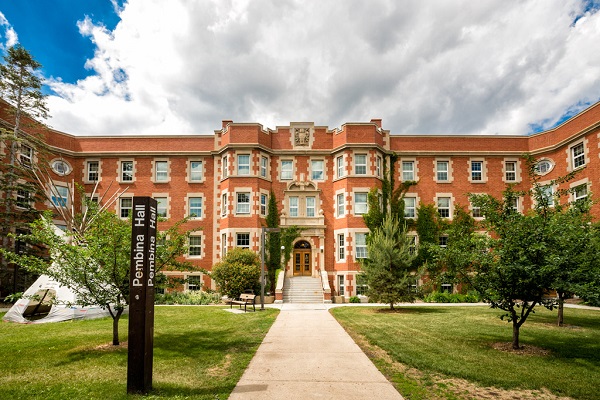University of Alberta: U of A lab joins ‘best of the best’ in worldwide effort to prepare for future pandemics
As soon as Chinese scientists identified the Langya henipavirus, a previously unknown virus spreading among Chinese farmers earlier this year, Matthias Götte’s lab got to work recreating the virus’s polymerase, or replication engine, with a view to stopping it in its tracks.
Since 2015, Götte and his lab colleagues have generated viral polymerase enzymes that are associated with more than 40 viruses with pandemic potential, along with biochemical tests to identify new drugs that can inhibit viral replication.
The U of A lab is now working with three newly created Antiviral Drug Discovery (AViDD) Centers for Pathogens of Pandemic Concern announced by the U.S. National Institutes of Health, backed by nearly $600 million in funding.
“These are large team grants with 40 or 50 scientists from academia and industry involved, all with different expertise — chemistry, medicinal chemistry, manufacturing, pharmacology, toxicology,” says Götte, professor and chair of medical microbiology and immunology in the Faculty of Medicine & Dentistry.
“They’re the best of the best who are working together to develop new antivirals.”
The goal is to discover and develop oral antiviral drugs for every single viral family with the potential to cause outbreaks or the next pandemic so the world is ready with an arsenal of effective countermeasures to fight back more quickly than it did with COVID-19.
Among the list of target virus families are filoviruses (including Ebola and Marburg), picornaviruses (which cause the common cold) and flaviviruses (which cause yellow fever, dengue fever and other diseases.)
Building an arsenal against the next pandemic
Götte’s lab began building its bank of viral polymerases in 2015. When Ebola broke out in the Democratic Republic of Congo in 2018, they used it to test the mechanism of action of the drug remdesivir against that virus.
Next they studied how remdesivir worked against the virus that causes Middle East Respiratory Syndrome. When the drug was redeployed against early infections of SARS-CoV-2, the virus that causes COVID-19, Götte’s lab was able to publish on that mechanism quickly when other data were scarce, which supported the drug’s approval in Canada, the U.S. and elsewhere.
Götte has been named to the AViDD teams at the University of North Carolina, Scripps Research and University of California, San Francisco, including taking on a leadership role with the University of North Carolina team.
The American research centres will carry out “high throughput screening,” testing millions of potential compounds within their chemical libraries using assays developed in the Götte laboratory to identify inhibitors of viral polymerases. The most promising will then be further developed, tested in clinical trials and manufactured, ready for the next viral pandemic.
“Every virus needs a polymerase in order to replicate,” explains Götte. “If we block these enzymes, we block replication and spread of the virus, which prevents further infections.”
The projects will bring approximately C$6 million in new research dollars to the U of A over the next five years, allowing for the expansion of the Götte team to approximately 15 from five people pre-COVID. Götte says his newly recruited graduate students will be exposed to top leaders in the field, which provides an outstanding training environment.
He is optimistic the hunt for new antivirals will be successful.
“The collective expertise in antiviral drug discovery and development is unprecedented, and that’s why I’m convinced that, before the end of the five-year term, there will be several small molecules ready to move into the clinic,” he says.

